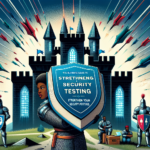In today’s rapidly evolving economy, the traditional concept of a 9-to-5 job is shifting. More and more individuals are transforming their hobbies into successful small businesses—a trend that not only empowers them financially but also cultivates their passions. This article delves into inspiring real-life success stories of small business start-ups, showcasing how everyday people harnessed their interests to build thriving enterprises.
Passion into Profit: The Journey Begins
Entrepreneurship often starts with a spark of inspiration from a personal passion. Many individuals discover that their hobbies can become a viable source of income. Consider Sarah Thompson, an avid baker who turned her love for pastries into a successful catering business. It all started with friends and family raving about her delectable creations during gatherings. Encouraged by their feedback, she decided to take a leap of faith. With the help of social media, Sarah marketed her brand, "Sweet Treats by Sarah," and within a year, she was catering for weddings and local events while also conducting baking classes.
Why is Sarah’s story significant? It underscores the importance of validating your hobby through friends and family and leveraging social media for marketing. Sarah dedicated herself to crafting a brand that resonated with her target audience, which played a crucial role in her early growth.
The Power of Community: A Network of Support
Building a small business does not have to be a solitary endeavor. Mike Rivera, a passionate cyclist, found his calling when he began repairing bikes in his garage for friends. As word spread about his expertise, Mike decided to open a bike repair shop in his local community. He focused not just on repairs, but on creating a hub for local cyclists, organizing rides and community events. The shop also featured a mini-café for patrons to relax, making it a social spot for cycling enthusiasts.
Mike’s success illustrates the significance of community engagement. By offering something beyond just a service, he fostered a loyal customer base and turned casual riders into committed clients. For aspiring entrepreneurs, the lesson is clear: integrate your business offerings with community needs to build stronger connections.
Embracing Online Platforms
Another success story comes from Lisa Chen, who was an artist creating beautiful home decor items as a hobby. After starting an Instagram account to showcase her work, Lisa’s profile attracted a sizable following. With encouragement from her audience, she launched an online shop. Lisa utilized platforms like Etsy and Shopify, which allowed her to reach customers around the globe. Her products soon received media attention, propelling sales even further.
Lisa’s experience highlights the importance of embracing digital platforms. In the current digital age, having an online presence is indispensable for small businesses. For hobbyists looking to monetize their passions, creating a cohesive online strategy—through social media, e-commerce platforms, and engaging with customers—can dramatically expand their reach.
Lessons Learned from Failures
Success rarely comes without setbacks. Consider the story of Daniel Harris, an amateur carpenter who began crafting furniture as a hobby. He launched his business, "Harris Woodworks," only to find himself struggling with supply chain issues and financial mismanagement early on. Instead of giving up, Daniel took these challenges as learning experiences. He enrolled in entrepreneurial workshops, learned about inventory control, and sought advice from more experienced business owners.
Daniel’s journey shows that failures are often stepping stones to success. Embracing a mindset of continual learning is essential for any entrepreneur. By overcoming obstacles, business owners can improve operations and ultimately achieve greater success.
Conclusion
These stories underscore a powerful message: turning a hobby into a thriving small business is not only possible but can also be incredibly rewarding. By leveraging passion, engaging with the community, embracing digital tools, and learning from setbacks, aspiring entrepreneurs can navigate the challenges of start-ups and transform their dreams into reality. Whether you’re a baker, a cyclist, or an artist, your hobby could be the foundation of your next big venture.
FAQs
Q1: What are the first steps to start a small business from a hobby?
A: Begin by validating your idea with friends and family, conducting market research to understand your target audience, and developing a business plan outlining your goals, strategies, and budget.
Q2: How can I effectively market my new business?
A: Utilize social media platforms to share your story and products. Consider local events, collaborations, and engaging with your community to build brand awareness.
Q3: Do I need funding to start my small business?
A: Not necessarily. Many small businesses can be started with minimal investment, particularly if you leverage your existing skills and resources. However, you may consider seeking small business loans or grants if larger investments are needed.
Q4: How do I handle competition in my niche?
A: Focus on what makes your offering unique. Build strong customer relationships and continuously improve your product. Understanding your audience’s needs will help differentiate your business from competitors.
Q5: What if my business struggles initially?
A: It’s important to remain adaptable. Seek feedback, identify areas for improvement, and be willing to pivot your strategy. Persistence and learning from mistakes are crucial for growth.











